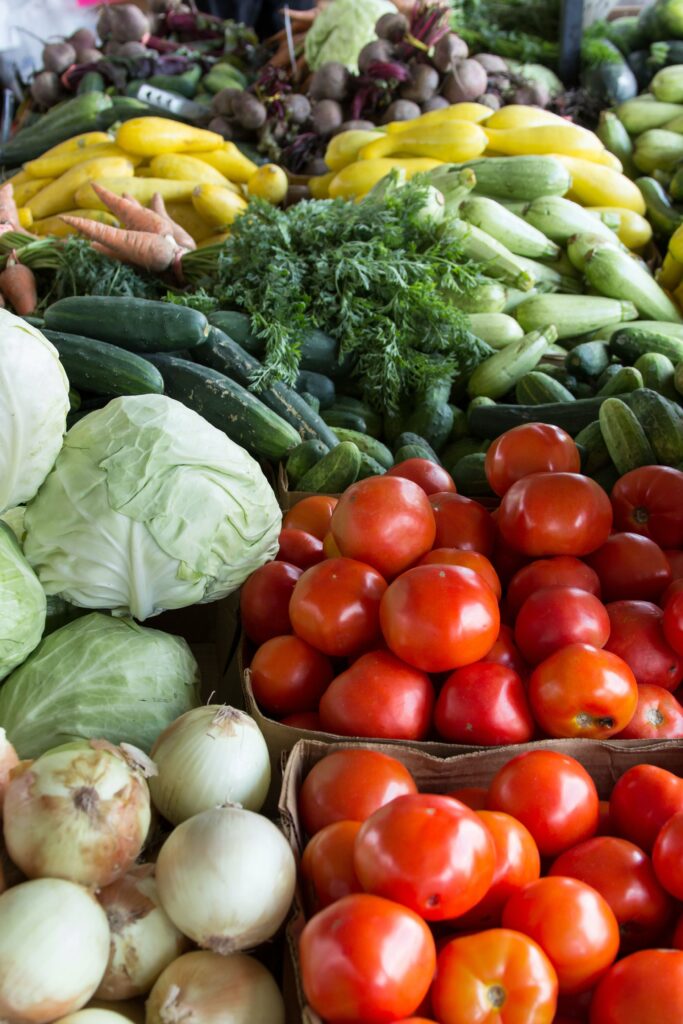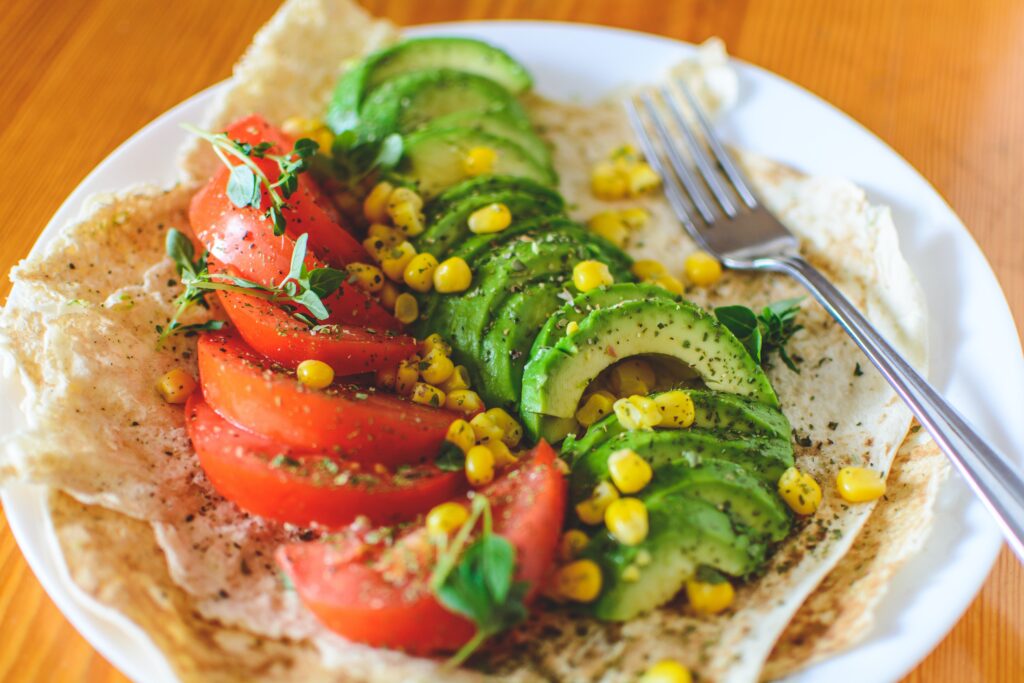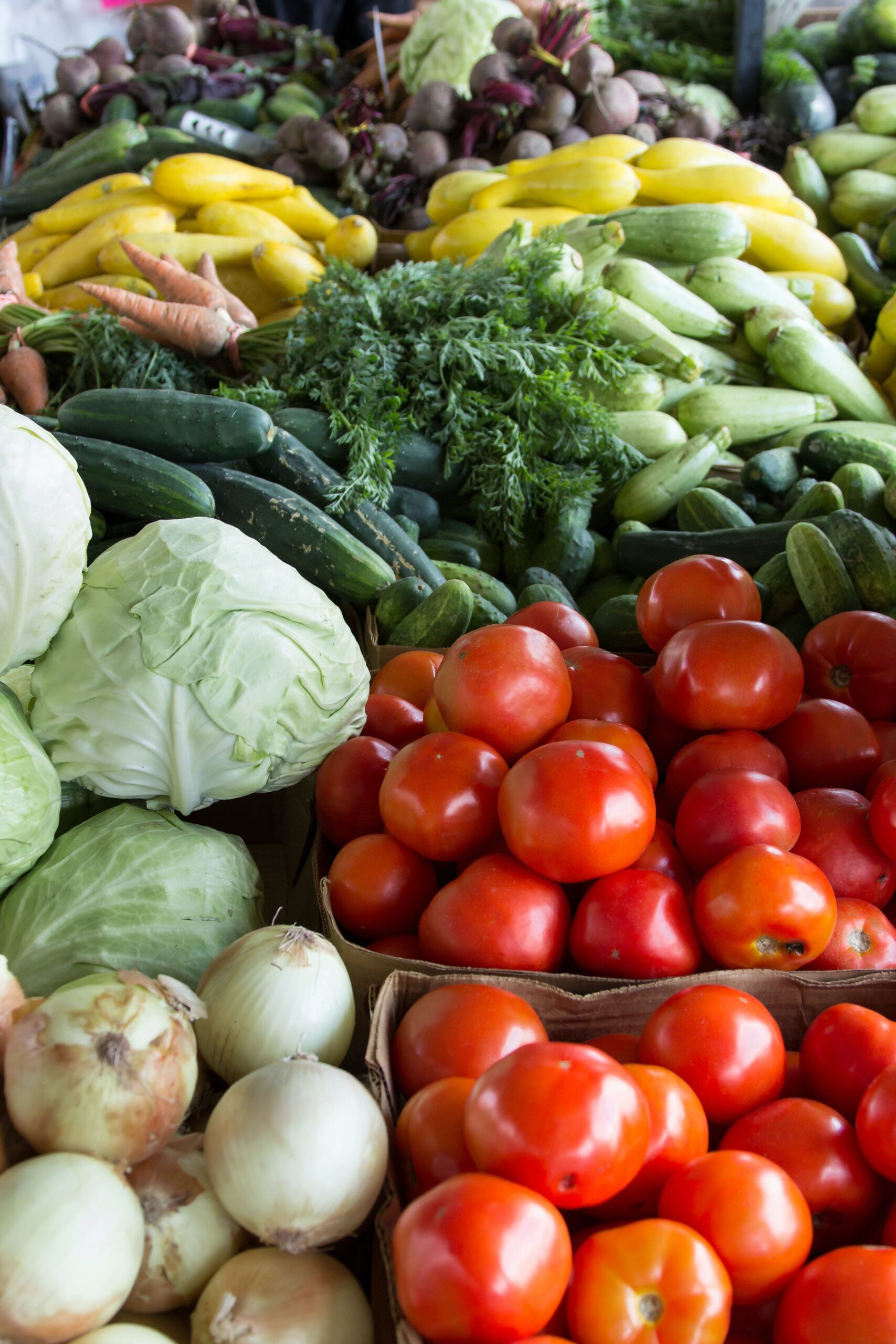A Nutrient-Packed, Environmentally Conscious, and Health-Oriented Approach

If you’re looking to make a change in your diet, the vegan lifestyle might be worth exploring. A vegan diet is rich in plant-based foods, free from animal products, and packed with nutrients for the environmentally conscious and health-oriented individual. By eliminating animal products from your diet, you can reap numerous health benefits while also reducing your carbon footprint.
Fundamentally, a vegan diet is centered around plant-based foods such as fruits, vegetables, whole grains, legumes, nuts, and seeds. These foods are packed with essential vitamins, minerals, and fiber that are vital for maintaining good health. A vegan diet is also typically lower in saturated fats and higher in healthy fats, which can help reduce the risk of chronic diseases such as heart disease, diabetes, and cancer.
By adopting a vegan diet, you can also have a positive impact on the environment. Animal agriculture is a significant contributor to greenhouse gas emissions, deforestation, and water pollution. By choosing plant-based foods, you can reduce your carbon footprint and help protect the planet. In the following sections, we will explore the health benefits of a vegan diet, different varieties of the vegan diet, meal planning and preparation, challenges and considerations, and transitioning to a vegan diet.
Key Takeaways
- A vegan diet is centered around plant-based foods and is free from animal products.
- A vegan diet can provide numerous health benefits and help reduce your carbon footprint.
- Veganism can be challenging to adopt, but with proper planning and preparation, it can be a rewarding lifestyle choice.
Fundamentals of a Vegan Diet

A vegan diet is a plant-based diet that excludes all animal products, including meat, fish, dairy, and eggs. Veganism is a lifestyle choice that seeks to reduce animal suffering, protect the environment, and improve human health. If you are considering adopting a vegan diet, it is important to understand the fundamentals of this dietary pattern.
Defining Veganism
Veganism is a philosophy and way of life that seeks to exclude all forms of animal exploitation and cruelty, whether for food, clothing, or any other purpose. Vegans believe that animals have the right to live their lives free from human exploitation and harm. By choosing a vegan diet, you are making a conscious decision to avoid supporting industries that exploit and harm animals.
Key Nutrients in Plant-Based Foods
A vegan diet can provide all the nutrients your body needs if it is well-planned and balanced. Plant-based foods are rich in fiber, vitamins, minerals, and antioxidants that promote health and prevent disease. Some key nutrients to be mindful of when following a vegan diet include:
- Protein: Plant-based protein sources include legumes, nuts, seeds, and whole grains. It is important to consume a variety of protein sources to ensure you are getting all the essential amino acids your body needs.
- Iron: Plant-based sources of iron include leafy greens, beans, lentils, tofu, and fortified cereals. Consuming vitamin C-rich foods, such as citrus fruits, can help enhance iron absorption.
- Calcium: Plant-based sources of calcium include leafy greens, tofu, fortified plant milks, and fortified orange juice. It is important to consume enough calcium to maintain strong bones and teeth.
- Vitamin B12: Vitamin B12 is primarily found in animal products, so it is important for vegans to supplement or consume fortified foods, such as plant milks, breakfast cereals, and nutritional yeast.
By being mindful of these key nutrients and incorporating a variety of plant-based foods into your diet, you can thrive on a vegan diet while supporting your health and the environment.
Health Benefits

Going vegan has been linked to several health benefits, making it a popular choice for those who are health-conscious. Here are some of the health benefits that you can enjoy by following a vegan diet:
Disease Prevention
A vegan diet is rich in fruits, vegetables, whole grains, and legumes, which are packed with essential vitamins, minerals, and antioxidants. These nutrients help to boost your immune system and reduce the risk of chronic diseases such as cancer, heart disease, and diabetes. According to a study published in the Journal of the American Heart Association, following a vegan diet can reduce the risk of developing heart disease by up to 42%.
Weight Management
If you’re looking to lose weight, a vegan diet can be an effective way to shed those extra pounds. A study published in the Journal of General Internal Medicine found that people who followed a vegan diet for 18 weeks lost an average of 4.3% of their body weight. Another study published in the Journal of the Academy of Nutrition and Dietetics found that vegans have a lower body mass index (BMI) than non-vegans.
Enhanced Digestive Health
A vegan diet is high in fiber, which is essential for maintaining a healthy digestive system. Fiber helps to regulate bowel movements, prevent constipation, and reduce the risk of colon cancer. By following a vegan diet, you can improve your gut health and reduce the risk of digestive disorders such as irritable bowel syndrome (IBS) and inflammatory bowel disease (IBD).
In summary, a vegan diet can provide several health benefits, including disease prevention, weight management, and enhanced digestive health. By consuming a variety of plant-based foods, you can ensure that you’re getting all the essential nutrients your body needs to function optimally.
Environmental Impact

If you are environmentally conscious and want to reduce your carbon footprint, the vegan diet is a great place to start. By consuming plant-based foods instead of animal products, you can significantly reduce your carbon footprint. According to a study published in The Guardian, vegan diets resulted in 75% less climate-heating emissions, water pollution, and land use than diets in which more than 100g of meat a day was eaten.
Reducing Carbon Footprint
Animal agriculture is one of the leading causes of greenhouse gas emissions. By consuming plant-based foods, you can help reduce the amount of greenhouse gases that are released into the atmosphere. According to a study published in the Journal of Cleaner Production, a vegan diet generates 50% less carbon dioxide than a diet that includes meat and dairy.
Conserving Water Resources
Plant-based lifestyles may play a role in water conservation. One study found that reducing animal intake would reduce global water use by 14%. This is because animal agriculture requires a significant amount of water. For example, it takes 23% less water to produce 1 kg of grain compared to 1 kg of beef. By consuming plant-based foods, you can help conserve water resources.
Biodiversity and Wildlife
Animal agriculture is also a leading cause of deforestation and habitat destruction. By consuming plant-based foods, you can help protect biodiversity and wildlife. According to a report from the United Nations Environment Programme, “animal products, both meat and dairy, in general, require more resources and cause higher emissions than plant-based alternatives.”
In conclusion, if you are looking to reduce your environmental impact, a vegan diet is a great place to start. By consuming plant-based foods, you can help reduce your carbon footprint, conserve water resources, and protect biodiversity and wildlife.
Vegan Diet Varieties

If you are interested in exploring a vegan diet, you’ll find that there are many different varieties to choose from. Here are a few popular options to consider:
Whole-Food Vegan Diet
A whole-food vegan diet is centered around consuming whole, plant-based foods that are minimally processed. This diet is typically high in fruits, vegetables, legumes, whole grains, nuts, and seeds. By eating a whole-food vegan diet, you can ensure that you are getting a wide range of nutrients, including vitamins, minerals, and fiber. This type of diet is also associated with a reduced risk of chronic diseases, such as heart disease, diabetes, and cancer.
Raw-Food Vegan Diet
A raw-food vegan diet is similar to a whole-food vegan diet, but with one key difference: all of the foods consumed are raw or minimally cooked. This means that the foods are not heated above 118°F (48°C) in order to preserve their natural enzymes and nutrients. While this type of diet can be challenging to follow, it is associated with a number of health benefits, including improved digestion, increased energy levels, and better skin health.
Junk-Food Vegan Diet
A junk-food vegan diet is centered around consuming vegan versions of processed foods, such as vegan pizza, vegan burgers, and vegan ice cream. While this type of diet may be convenient and tasty, it is typically high in calories, saturated fat, and added sugars. Consuming too many of these foods can lead to weight gain and other health problems. However, if you are transitioning to a vegan diet, incorporating some vegan junk food can help make the transition easier.
No matter which type of vegan diet you choose, it’s important to ensure that you are getting all of the nutrients your body needs. Consider consulting with a registered dietitian to develop a meal plan that meets your individual needs.
Meal Planning and Preparation

When transitioning to a vegan diet, meal planning and preparation are key to ensure that you are getting all the necessary nutrients your body needs. Here are some tips to help you create balanced vegan meals, learn vegan cooking techniques, and shop for vegan ingredients.
Creating Balanced Meals
A balanced vegan meal should include a variety of whole plant-based foods such as fruits, vegetables, legumes, whole grains, nuts, and seeds. To ensure that you are getting all the necessary nutrients, aim to include a source of protein, healthy fats, and complex carbohydrates in each meal.
Here is an example of a balanced vegan meal:
- Grilled tofu (protein)
- Quinoa (complex carbohydrates)
- Roasted sweet potatoes (complex carbohydrates)
- Steamed broccoli (fiber and vitamins)
- Avocado (healthy fats)
Vegan Cooking Techniques
Cooking vegan meals can be simple and delicious. Here are some vegan cooking techniques to help you get started:
- Roasting: Roasting vegetables, tofu, and tempeh is an easy and delicious way to add flavor and texture to your meals.
- Stir-frying: Stir-frying is a quick and easy way to cook vegetables, tofu, and tempeh. Use a non-stick pan and a small amount of oil or vegetable broth to sauté your ingredients.
- Steaming: Steaming vegetables is a healthy and easy way to cook them. Use a steamer basket or a pot with a lid and a small amount of water to steam your vegetables.
- Baking: Baking is a great way to cook potatoes, sweet potatoes, and other root vegetables. Simply wash and scrub your vegetables, prick them with a fork, and bake them in the oven until they are tender.
Shopping for Vegan Ingredients
When shopping for vegan ingredients, focus on whole plant-based foods such as fruits, vegetables, legumes, whole grains, nuts, and seeds. Here are some tips to help you shop for vegan ingredients:
- Read food labels: Look for products that are free from animal products such as meat, dairy, and eggs. Also, check the ingredient list for any hidden animal-derived ingredients such as gelatin, casein, and whey.
- Shop in the produce section: The produce section is where you will find the majority of vegan ingredients. Aim to fill your cart with a variety of colorful fruits and vegetables.
- Explore the bulk section: The bulk section is a great place to find vegan staples such as whole grains, legumes, nuts, and seeds. Buying in bulk can also be more cost-effective.
By following these tips, you can create delicious and balanced vegan meals while also reducing your environmental impact and promoting good health.
Challenges and Considerations

Going vegan can be a rewarding and fulfilling experience, but it also comes with its own set of challenges and considerations. Here are some things to keep in mind when transitioning to a vegan diet.
Eating Out as a Vegan
Eating out as a vegan can be a bit tricky, especially if you’re dining with non-vegan friends or family members. However, with a little bit of planning, you can still enjoy a delicious meal at your favorite restaurant.
One thing to keep in mind is to research the restaurant beforehand. Many restaurants now offer vegan options or can make substitutions to make a dish vegan-friendly. You can also check out vegan-friendly restaurants in your area to make dining out a little easier.
Another option is to eat a small meal or snack before heading out to the restaurant. This way, you won’t be as hungry and can focus on enjoying the company rather than worrying about the food.
Dealing with Social Situations
Social situations can also be a challenge when you’re a vegan. You may find yourself at a barbecue or dinner party where there are no vegan options available.
One way to deal with these situations is to bring your own food. You can pack a vegan dish or snack to share with others or enjoy on your own. This way, you won’t have to worry about going hungry or feeling left out.
Another option is to talk to the host beforehand. Let them know that you’re vegan and ask if they can make a vegan-friendly dish or provide some vegan options. They may be more accommodating than you think.
Nutritional Deficiencies and Supplements
One concern that many people have when transitioning to a vegan diet is the risk of nutritional deficiencies. While a vegan diet can be very healthy, it’s important to make sure you’re getting all the nutrients your body needs.
Some nutrients that vegans may be at risk of lacking include vitamin B12, calcium, and iron. However, there are many vegan-friendly sources of these nutrients, such as fortified plant milks, leafy greens, and legumes.
If you’re concerned about getting enough of these nutrients, you may want to consider taking a vegan-friendly multivitamin or supplement. This can help ensure that you’re getting all the nutrients your body needs to stay healthy.
Overall, while there are some challenges and considerations to keep in mind when transitioning to a vegan diet, it can be a rewarding and fulfilling experience. With a little bit of planning and preparation, you can enjoy all the benefits of a plant-based diet while still enjoying your favorite foods and social situations.
Transitioning to a Vegan Diet

Transitioning to a vegan diet can be a significant change, but it doesn’t have to happen overnight. With the right approach, you can make the transition smoothly and enjoyably. In this section, we’ll explore different ways to transition to a vegan diet and maintain it.
Gradual Change Approach
If you’re not ready to make an immediate change, you can adopt a gradual change approach. Start by incorporating more plant-based foods into your meals, such as fruits, vegetables, whole grains, nuts, and seeds. Gradually reduce animal products, such as meat, dairy, and eggs, and replace them with plant-based alternatives. This approach can help you adjust to the new diet, and you’ll be less likely to feel overwhelmed.
Immediate Transition
If you’re ready to make an immediate change, you can switch to a vegan diet all at once. This approach requires more planning and preparation, but it can be a faster way to transition. Start by researching vegan recipes and meal plans, and stock up on vegan-friendly foods. Make sure to include a variety of plant-based foods to ensure you’re getting all the nutrients your body needs.
Maintaining a Vegan Lifestyle
Maintaining a vegan lifestyle requires some planning and preparation. Make sure to read food labels carefully, and avoid products that contain animal-derived ingredients, such as gelatin, whey, or casein. You can also join vegan communities and groups to connect with other like-minded individuals and get support. Remember to focus on the benefits of a vegan diet, such as improved health, environmental sustainability, and animal welfare. With the right mindset and approach, you can maintain a vegan lifestyle for the long term.
In summary, transitioning to a vegan diet can be a positive change for your health and the environment. Whether you choose a gradual or immediate approach, make sure to include a variety of plant-based foods and get the nutrients your body needs. With the right mindset and preparation, you can maintain a vegan lifestyle and enjoy its benefits.
Frequently Asked Questions

What are the essential nutrients to focus on in a vegan diet to maintain optimal health?
A well-planned vegan diet can provide all the necessary nutrients for optimal health. However, it is important to pay attention to certain nutrients that are commonly found in animal products. These include protein, iron, calcium, vitamin B12, and omega-3 fatty acids. Plant-based sources of these nutrients include legumes, nuts, seeds, whole grains, fortified plant milks, and supplements. It is recommended to consult a registered dietitian to ensure that your vegan diet is nutritionally adequate.
How do plant-based diets contribute to reducing one’s carbon footprint?
Plant-based diets have been shown to have a lower carbon footprint compared to diets that include animal products. This is because animal agriculture is a major contributor to greenhouse gas emissions, deforestation, and water pollution. By choosing plant-based foods, you can reduce your environmental impact and promote sustainability.
What are the common challenges when transitioning to a plant-based diet and how can they be overcome?
Common challenges when transitioning to a plant-based diet include finding suitable replacements for animal products, social pressures, and lack of knowledge about plant-based nutrition. These challenges can be overcome by gradually transitioning to a plant-based diet, experimenting with new plant-based recipes, seeking support from like-minded individuals, and educating oneself about plant-based nutrition.
Can a vegan diet provide sufficient protein for athletes and those with high physical demands?
Yes, a well-planned vegan diet can provide sufficient protein for athletes and those with high physical demands. Plant-based sources of protein include legumes, nuts, seeds, whole grains, and soy products. It is important to consume a variety of protein sources throughout the day to ensure adequate intake.
What should consumers look for when selecting healthy and sustainable plant-based meat alternatives?
When selecting plant-based meat alternatives, consumers should look for products that are minimally processed, made from whole food ingredients, and free from additives and preservatives. They should also consider the environmental impact of the product, such as its carbon footprint and packaging.
Are there any long-term health risks associated with adopting a vegan lifestyle?
A well-planned vegan diet is considered safe and healthy for all stages of life, including pregnancy and infancy. However, it is important to ensure adequate intake of certain nutrients, such as vitamin B12, iron, and calcium, which may require supplementation. It is recommended to consult a registered dietitian to ensure that your vegan diet is nutritionally adequate.



